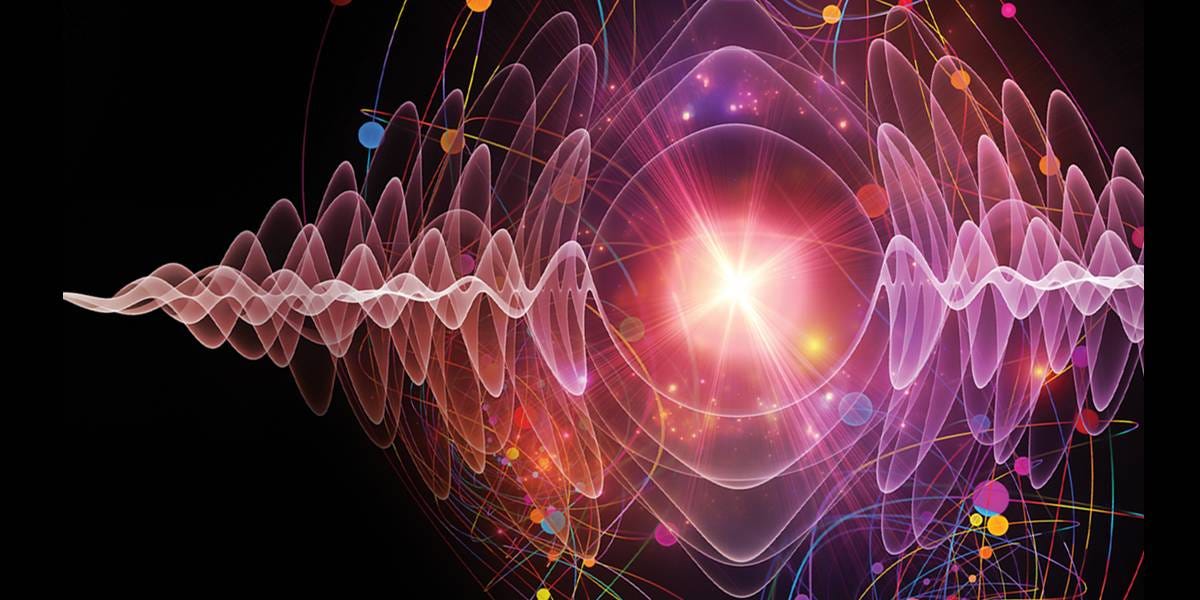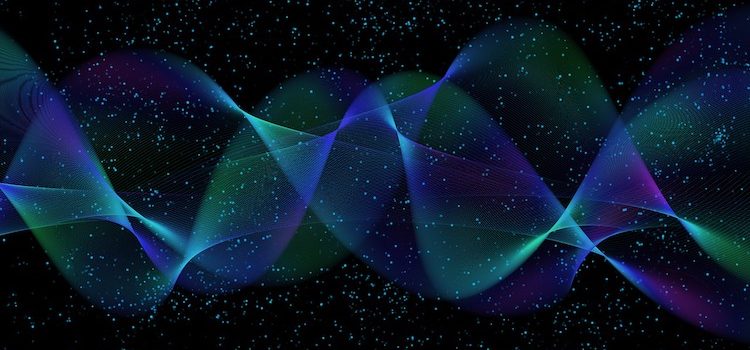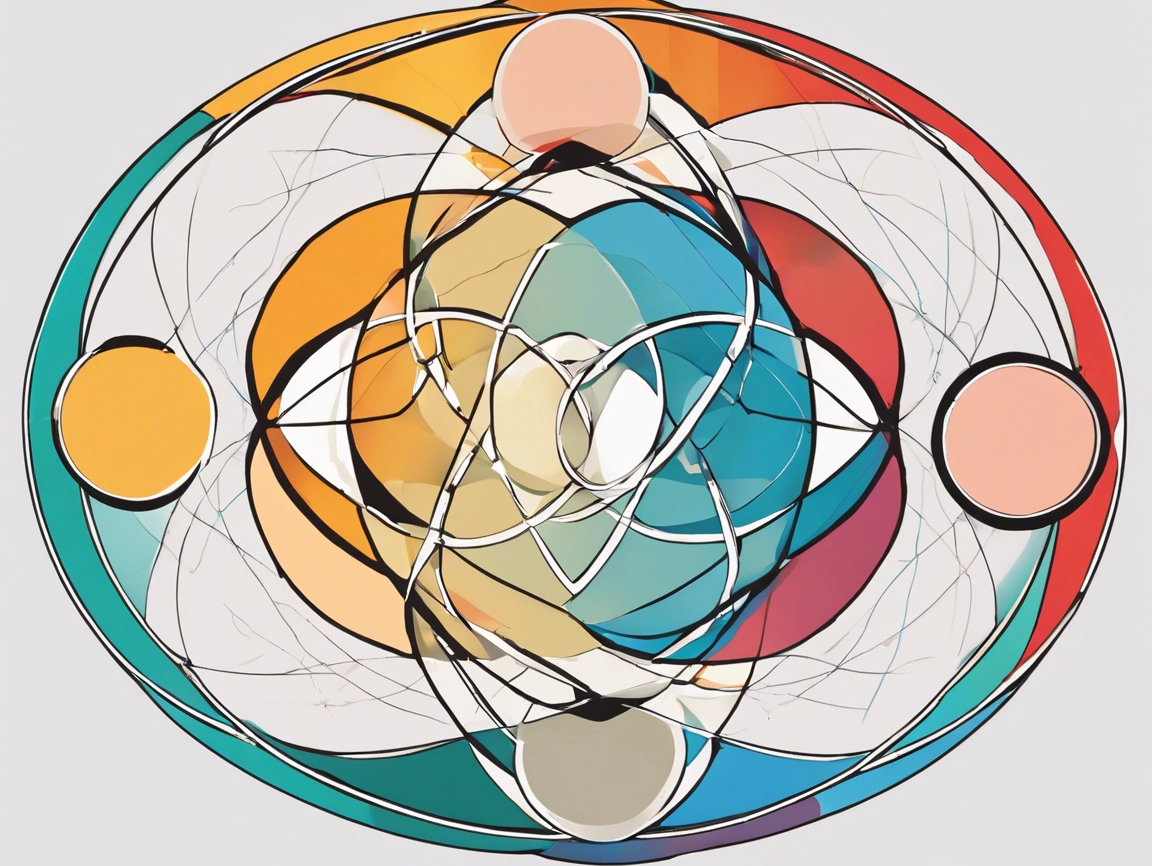Introduction
Quantum physics, the branch of science that explores the behavior of particles at the smallest scales, has revolutionized our understanding of the universe. Surprisingly, some interpretations of Quranic verses seem to reflect principles that resonate with quantum theory. This article explores the intriguing intersections between Quranic teachings and quantum physics, offering a unique perspective on how ancient wisdom aligns with modern scientific discoveries.
1. Quantum Concepts and Quranic References

1.1 The Concept of Wave-Particle Duality
Wave-particle duality is a fundamental principle of quantum physics, suggesting that particles exhibit both wave-like and particle-like properties. This concept finds a parallel in the Quranic description of the universe and its elements:
“He created the heavens and the earth in truth. He wraps the night over the day, and wraps the day over the night, and has subjected the sun and the moon, each running [its course] for a specified term.” (Quran 39:5)
The Quran’s depiction of the cosmos as a dynamic and intertwined system echoes the wave-particle duality in quantum physics, where entities can display multiple aspects of reality simultaneously.

Heisenberg’s Uncertainty Principle in quantum physics posits that certain pairs of physical properties, like position and momentum, cannot both be precisely measured simultaneously. The Quranic concept of divine knowledge and the limits of human understanding can be related to this principle:
“And of knowledge, you have been given only a little.” (Quran 17:85)
This verse reflects the idea that human knowledge is limited, resonating with the quantum understanding that some aspects of reality remain inherently uncertain and beyond precise measurement.

Quantum superposition refers to the ability of particles to exist in multiple states simultaneously until observed. This concept is metaphorically reflected in the Quranic description of the creation and the unseen:
“And with Him are the keys of the unseen; none knows them except Him. And He knows whatever is in the land and the sea. Not a leaf falls but that He knows it.” (Quran 6:59)
The idea that Allah encompasses all knowledge and that unseen aspects of creation are within His domain resonates with the concept of quantum superposition, where all possibilities exist until observed.
2. Quranic Insights on the Nature of Reality

The Quranic description of creation aligns with modern quantum physics concepts. For instance:
“Do not those who disbelieve see that the heavens and the earth were a closed-up mass, then We opened them out?” (Quran 21:30)
This verse can be interpreted to reflect the Big Bang theory, which posits that the universe began as a singularity and expanded. The notion of an initially unified mass aligns with contemporary scientific models of the universe’s origin.

2.2 The Concept of Subatomic Particles
Quantum physics delves into the behavior of subatomic particles, revealing a complex and interconnected universe. The Quran speaks of the minutest details of creation:
“Not even the weight of an atom’s weight in the heavens or on the earth is less than that [amount] or greater but that it is in a Clear Record.” (Quran 34:3)
This verse highlights the detailed knowledge of even the smallest components of the universe, mirroring the quantum focus on subatomic particles and their interactions.
3. The Interplay of Observation and Reality
3.1 The Role of the Observer
In quantum mechanics, the act of observation affects the state of a quantum system. The Quranic perspective on divine observation and the unfolding of reality can be related to this principle:
“Indeed, Allah is Knowing and Acquainted.” (Quran 58:13)
The concept that Allah’s knowledge encompasses all aspects of reality reflects the idea that observation plays a crucial role in the manifestation of the universe, aligning with quantum theories.
3.2 The Unseen and the Observable
Quantum physics acknowledges the existence of phenomena beyond human perception. The Quran also addresses the unseen and the observable:
“Say, ‘The unseen belongs to Allah alone; so wait. Indeed, I am with you among those who wait.’” (Quran 72:26-27)
This verse underscores the distinction between the seen and the unseen, resonating with quantum physics’ exploration of phenomena beyond immediate perception.
4. Philosophical and Theological Reflections
4.1 The Unity of Knowledge
The Quran emphasizes the unity of divine knowledge and creation:
“And He is with you wherever you may be. And Allah, of whatever you do, is Seeing.” (Quran 57:4)
This concept reflects the interconnectedness of all aspects of existence, akin to the quantum idea of a unified field where everything is interrelated.
4.2 The Limitations of Human Perception
The Quran acknowledges the limitations of human perception and understanding:
“Say, ‘If the ocean were ink [wherewith to write] the words of my Lord, the ocean would be exhausted before the words of my Lord were exhausted.’” (Quran 18:109)
This verse highlights the vastness of divine knowledge compared to human understanding, paralleling the quantum perspective that some aspects of reality remain beyond human grasp.
5. Practical Implications and Modern Perspectives
5.1 Integrating Quranic Insights with Scientific Inquiry
The alignment between Quranic teachings and quantum physics offers a unique perspective for integrating spiritual insights with scientific exploration. This integration can foster a deeper understanding of the universe and encourage a holistic approach to knowledge.
5.2 Promoting Interdisciplinary Research
Exploring the connections between Quranic wisdom and quantum physics can inspire interdisciplinary research, bridging the gap between spiritual and scientific domains. This approach can lead to new insights and innovations in both fields.
5.3 Enhancing Spiritual and Scientific Understanding
The exploration of quantum physics through the lens of Quranic teachings enriches both spiritual and scientific understanding. It encourages individuals to appreciate the profound wisdom of the Quran while engaging with contemporary scientific advancements.
Conclusion
The intersection of quantum physics and Quranic teachings provides a fascinating exploration of the universe’s nature and our place within it. By examining Quranic verses in the context of quantum principles, we uncover a unique perspective that harmonizes spiritual insights with modern scientific understanding. This integration offers a deeper appreciation of the universe’s complexity and the divine wisdom that underpins its existence.









